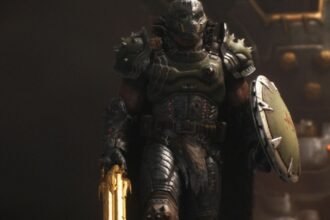Without interactivity, the Ellie Williams familiar to players from the Last of Us games could never match the character presented on Sunday night television. However, by the conclusion of season 2 of HBO’s The Last of Us, it became clear that the portrayal of the games’ immune teen protagonist is not just a different take, but rather a significantly altered version. The essence of game-Ellie has been compromised, and the adaptation suffers as a result.
Initially, despite numerous deviations from the source material, there was some optimism regarding the adaptation by Craig Mazin and Neil Druckmann. Season 1 of The Last of Us offered a compelling representation of a rebellious Ellie. Portrayed by Bella Ramsey, this version of Ellie displayed a rebelliousness and immaturity that felt authentic for a 14-year-old girl. I was somewhat accepting of the changes made, as many were positive; for instance, the show introduced Ellie’s sexuality early on, in contrast to the game, where her orientation was revealed only later through downloadable content.
In The Last of Us Part 2, Ellie’s character undergoes a drastic transformation. Years after the original game’s events, we meet a hardened version of Ellie, shaped by the influence of Joel, her mentor and father figure. While moments of tenderness exist, particularly through her budding romance with Dina, years of trauma—including Joel’s death—have forged Ellie into a stoic survivor. When she does express emotion, it is typically manifested as intense anger, usually fueled by her desire for revenge. In contrast, game-Ellie is meticulously capable, embodying a determined killer.
Conversely, season 2 of the show presents an Ellie whose character feels infantilized and, at times, neutered. She appears immature and naive, especially in managing her relationships. Though capable of violence—her tolerance for it seems unusually high compared to others in her community of Jackson, Wyoming—Ellie often acts impulsively. Rather than meticulously planning her survival in a perilous world, she risks the safety of those around her merely to alleviate her own boredom and frequently instigates conflicts without reason.
There’s a certain audacity to the idea of an individual taking on a violent group in a zombie-filled landscape, as depicted in the second game. However, Ellie, embodying Joel’s spirit, wouldn’t recklessly engage in such dangerous behavior. Joel was a man capable of overwhelming force, wiping out entire groups of soldiers without hesitation, even when starting unarmed. Ellie’s risks in the games were calculated, giving weight to her pursuit of Joel’s killer, Abby. Although success was never guaranteed, it felt justified.
In stark contrast, the show depicts Ellie stumbling through Seattle, facing close calls that seem less like the brutal realities of a hostile world and more as signs of poor judgment. Near the end of the season, when she pursues Abby alone yet again, her recklessness nearly costs her life. Dina comes off as a more capable fighter, proving she can strategize and plan routes, while Ellie appears more like a reckless follower.
This characterization becomes even more perplexing given Ellie’s background as someone trained to be a leader in FEDRA. Her inability to be anything but a liability in the mission to find Abby contradicts this backstory. Many of the predicaments that land her and Dina in peril stem from decisions Ellie has made. For instance, Ellie insists on entering a zombie-infested area, only to be overwhelmed by the undead—a predictable outcome that undermines the story’s premise, which hinges on Ellie seeking revenge for Joel’s death against all odds.
Instead of presenting the cold-blooded assassin seen in the games, the show offers a paternalistic perspective on Ellie. It devotes significant time to Dina’s pregnancy, including scenes of Ellie selecting a book for the baby—moments crafted to seem poignant but ultimately fall flat. The awkward delivery of her declaration about becoming a father lacks the emotional resonance it intended.
Later in the season, when Ellie accidentally shoots Abby’s friend Mel—who dies begging her to save her baby—the approach reverts to framing the women primarily through their reproductive roles, overshadowing their individual narratives. In the games, Ellie remains unaware of Mel’s pregnancy until after Mel’s death. This change, while darker, detracts from the complexity of the characters and their experiences.
Mazin and Druckmann may have aimed for these narrative shifts to underscore familial themes, exploring Joel’s traumatic past and his relationship with his father. After his demise, Ellie struggles with how to uphold his legacy. However, Joel’s legacy is rooted in violence, shaping Ellie into an assassin within the games, fueling her drive to hunt down Abby. The main lesson she learns from Joel is that ruthlessness and force are effective, often at the cost of her own happiness.
In the games, Ellie appears indifferent towards Dina’s baby, which may be troubling for audiences quick to critique maternal instincts. While the show emphasizes themes of parenthood and family, it fails to portray parenting as a pathway for Ellie’s growth. Rather, her newfound interest in family comes across









